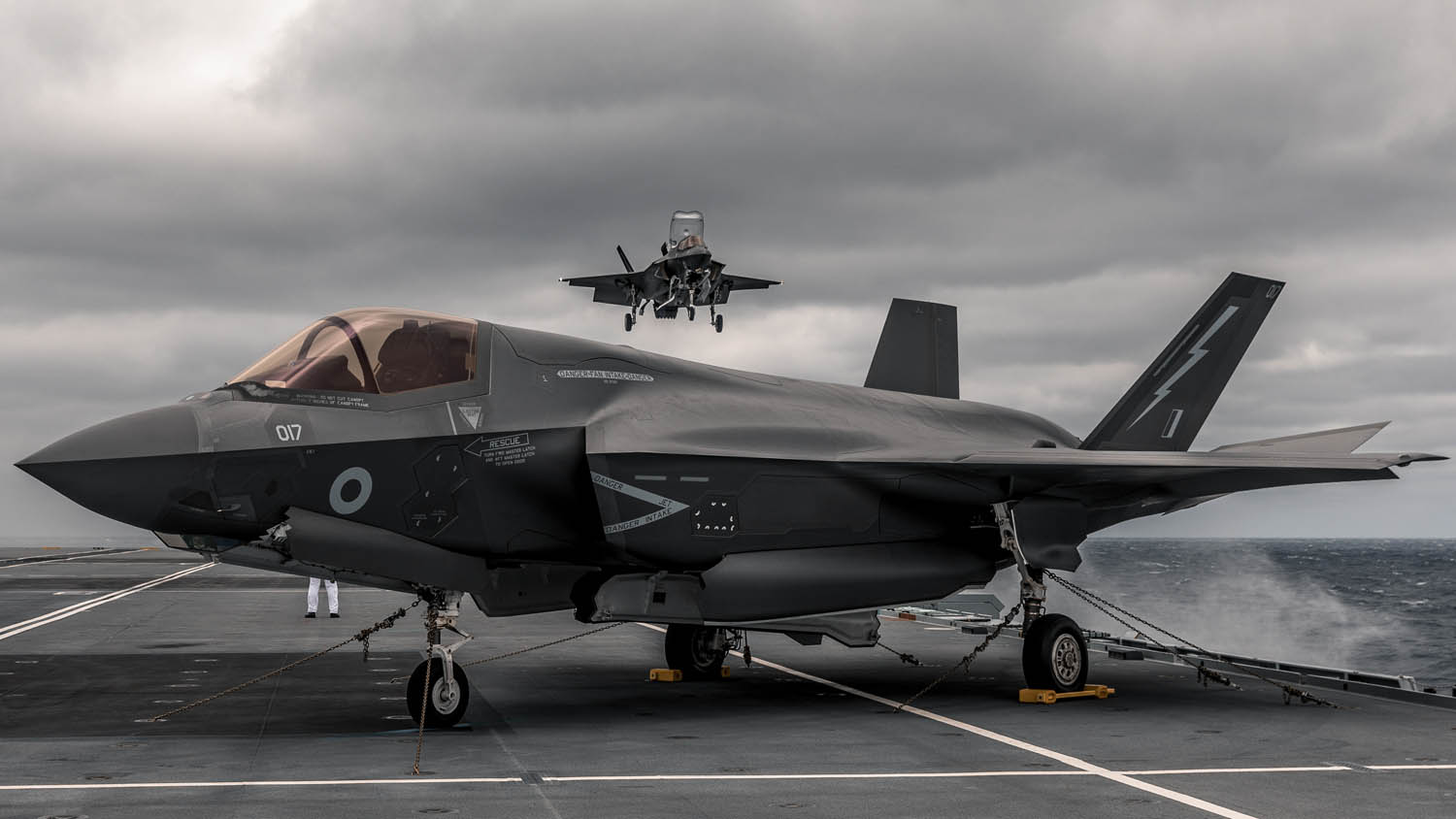British fighter pilots have recently been the subject of intense scrutiny for all the wrong reasons. While the reports of China poaching British fighter pilots has not even cooled down, the UK Defense Secretary has disclosed a new issue involving the nation’s pilots.
Defense secretary Ben Wallace said that the UK has more cutting-edge F-35 fighter planes than pilots because of issues with training. Wallace acknowledged that the Ministry of Defense possesses over 20 next-generation jets and cannot even man them all.
“It’s a shambles,” a former Royal Air Force officer told Sky News. The defense secretary called the situation “quite a challenge,” stating that the pilot shortage was also due to the newness of the F-35 Lightning aircraft.
However, the Ministry of Defense officially declared its aim to purchase the aircraft back in 2006, and it was delivered to the UK in 2012. The UK is one of several international partners in the F-35 program.
The defense secretary noted that a significant contributing cause was the military’s arduous flight training, which was plagued by delays. Pilots had to wait up to eight years to qualify rather than the intended two to three years.

Wallace stated, “Our pilot pipeline is not where I would want it to be.” Three years ago, he directed the Royal Air Force’s commander, Air Chief Marshal Sir Mike Wigston, to emphasize resolving the issues related to flying training. The situation, however, remains unchanged.
The United Kingdom’s investment in the F-35 program equips the Royal Air Force (RAF) and the Royal Navy with a powerful fifth-generation aircraft.
The fighter aircraft is regarded as a major force behind future aerospace innovation in the UK, boosting the nation’s expanding global stance and acting as a critical tool in the shift to multi-domain operations (MDO).
Britain originally planned to purchase 138 F-35 fighter jets over time. However, it has only bought 27 aircraft so far.
One aircraft was lost after crashing into the water last year from the Royal Navy’s aircraft carriers. With three F-35s in the US, there are currently 23 aircraft available for use by pilots of the UK military.
Issues With RAF Pilot Training
It is not the first time that the subject of training timeframe has come up. In August 2022, Sky News reported that the RAF has difficulty training jet pilots due to faulty aircraft and a lack of instructors.
According to leaked documents analyzed by Sky News, Royal Air Force recruits must wait months or even years for training slots to become available.
The report said that the delays might make it more difficult for the crew to operate frontline Typhoon and F35 squadrons in the future while China and Russia pose a growing number of threats amid an ongoing war in Europe.
Sky News acquired an internal memo from May and presentation materials from a meeting of senior RAF commanders in July that highlighted an “emerging problem with the Rolls-Royce engine on the Hawk jet, used by fast jet recruits for training.”
“It will reduce pipeline capacity over the next three years. This will increase waiting times for some trainees to join the course to about 12 months,” the report added.
It further said that a “damaging drain” of skilled pilots who leave the RAF for better-paying employment in industry rather than continuing in frontline or instructional roles is a concern.
One slide from the presentation also indicated that “the draw is so great from such a small pool we are approaching a critical mass point.” However, RAF sources said there was no “mass exodus.”
At the time, a serving officer familiar with the training pipeline told the British news outlet on the condition of anonymity, “at the moment, it’s the biggest f*** up in the RAF.”
Sources told Sky News that the delays are completely absurd, especially when taxpayer money is involved. They said that the candidates complete their flying training over six to eight years when it should only take two to three years.
Nonetheless, the RAF previously acknowledged the problems with the training pipeline but added that they are collaborating across the defense sector, industry, and overseas partners to make improvements.
- Contact the author at ashishmichel@gmail.com
- Follow EurAsian Times on Google News